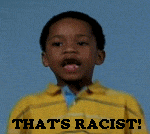- Joined
- Jun 4, 2010
- Messages
- 47
- Reaction score
- 1
In 1982 the Brown University Program in Medicine eliminated the personal interview from its process of selecting applicants for admission to medical school. This study compares the 113 M.D.-program students admitted to the first three classes (entering between 1983 and 1985) without an interview with the 67 students in the previous three classes admitted with an interview. The students' characteristics were essentially the same with respect to the preadmission variables, the proportions of women and minority students, course performances, scores on Parts I and II of the National Board of Medical Examiners examinations, and evaluation scores from residency program directors. This study offers additional evidence that the selection interview, as practiced in most U.S. medical schools, does not contribute to the predictive validity of the admission process.
http://journals.lww.com/academicmed..._school_and_residency_performances_of.12.aspx
(C) 1991 Association of American Medical Colleges
My observations:
- Many European schools select students only on the basis of standardized tests and their doctors are better than ours in many respects
- Almost all PhD programs, who select our nation's professors and scientists, never require an admissions interview.
- the admission interview is usually used as an argument to reject qualified minorities who don't have minority status (e.g. Chinese, Koreans, East Indians, etc). Prejudices come into play.
http://journals.lww.com/academicmed..._school_and_residency_performances_of.12.aspx
(C) 1991 Association of American Medical Colleges
My observations:
- Many European schools select students only on the basis of standardized tests and their doctors are better than ours in many respects
- Almost all PhD programs, who select our nation's professors and scientists, never require an admissions interview.
- the admission interview is usually used as an argument to reject qualified minorities who don't have minority status (e.g. Chinese, Koreans, East Indians, etc). Prejudices come into play.

